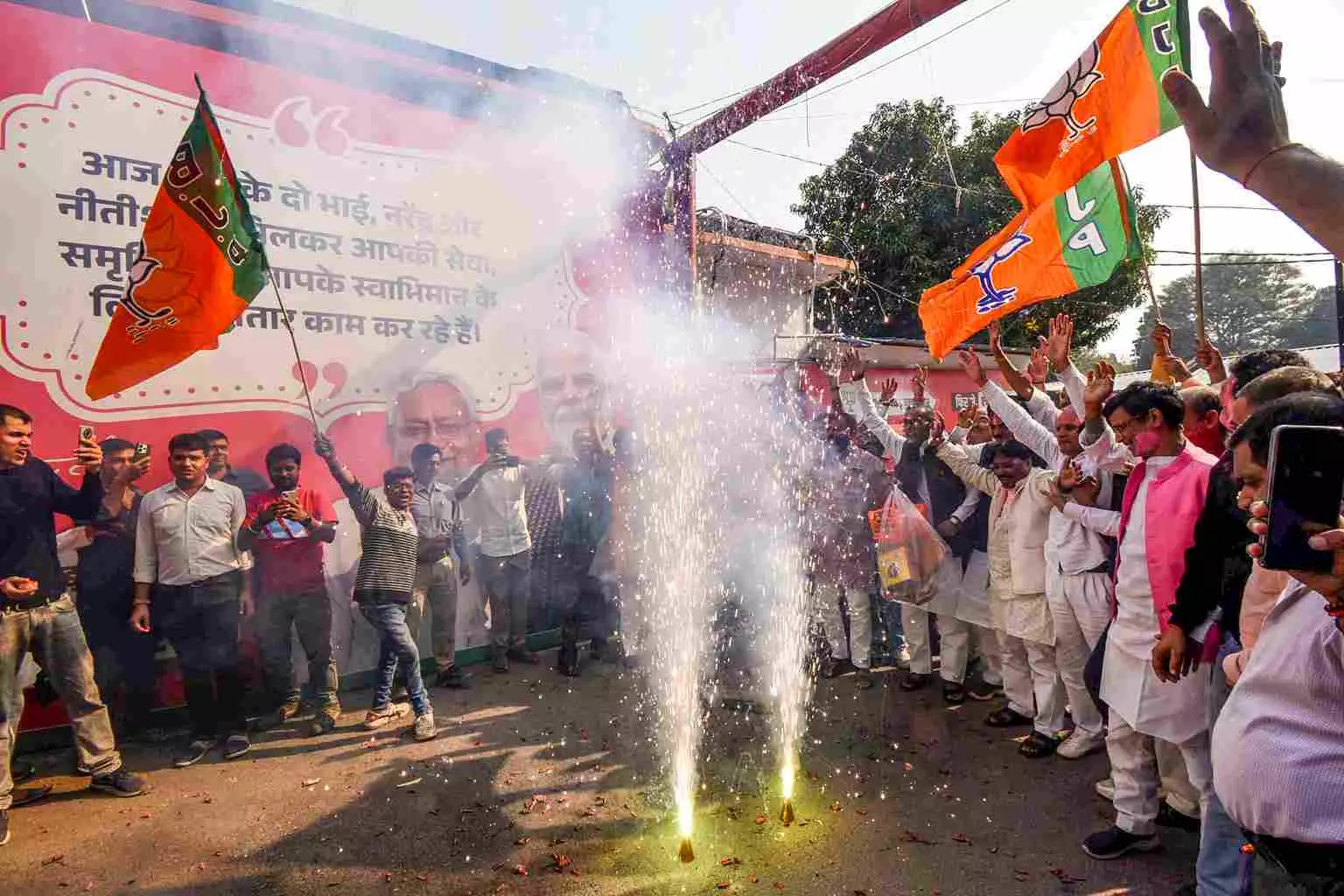
- Home
- India
- World
- Premium
- THE FEDERAL SPECIAL
- Analysis
- States
- Perspective
- Videos
- Sports
- Education
- Entertainment
- Elections
- Features
- Health
- Business
- Series
- In memoriam: Sheikh Mujibur Rahman
- Bishnoi's Men
- NEET TANGLE
- Economy Series
- Earth Day
- Kashmir’s Frozen Turbulence
- India@75
- The legend of Ramjanmabhoomi
- Liberalisation@30
- How to tame a dragon
- Celebrating biodiversity
- Farm Matters
- 50 days of solitude
- Bringing Migrants Home
- Budget 2020
- Jharkhand Votes
- The Federal Investigates
- The Federal Impact
- Vanishing Sand
- Gandhi @ 150
- Andhra Today
- Field report
- Operation Gulmarg
- Pandemic @1 Mn in India
- The Federal Year-End
- The Zero Year
- Science
- Brand studio
- Newsletter
- Elections 2024
- Events
- Home
- IndiaIndia
- World
- Analysis
- StatesStates
- PerspectivePerspective
- VideosVideos
- Sports
- Education
- Entertainment
- ElectionsElections
- Features
- Health
- BusinessBusiness
- Premium
- Loading...
Premium - Events

Rs 10,000 pre-poll handouts and unsustainable promises have worsened Bihar’s fiscal woes, sidelining governance and investment in favour of short-term electoral gains
The Bihar results were out even before polling began: Bihar has lost, whoever the victor in the Assembly elections. With well over one crore women being paid Rs 10,000 crore by the incumbent government, supposedly for self-employment ventures, and promises of future fiscal support for such enterprises, the political economy of state handouts had been entrenched before polling began.
Also read | Bihar elections: Tejashwi’s Raghopur nail-biter reflects RJD’s worst show in 15 years
The Opposition, too, campaigned on a platform of giveaways. Bihar’s solid reputation as India’s poorest state may soon harden even more, almost like a diamond.
Fragile revenues, rising burdens
According to the Budget for 2024-25, Bihar’s capital outlay was Rs 29,415.9 crore. The poll-eve handout to women is one-third of the state’s annual capital outlay. The capital outlay has been financed almost entirely, except for Rs 320.5 crore (1.01%), out of borrowings: the state’s gross fiscal deficit for the year was Rs 29,095.4 crore. To sustain the same capital outlay next year, the state’s borrowing would have to go up by a whopping one-third — unless the Centre chips in with more funds, at the expense of its other commitments, whether to defence, crucial investment in research and development or equitable treatment of other states.
Bihar is a state that runs largely on central transfers and borrowings. Its own tax revenue amounts to 5.6% of the Gross State Domestic Product (GSDP), while the average for all states and Union territories is 29% higher, at 7.2% of GSDP. The state’s own non-tax revenue stands at just 0.8% of GSDP, compared to the all-states average of 1.2%, about 50% higher. Current transfers remain Bihar’s fiscal backbone, accounting for 17% of GSDP, nearly three times the all-states average of 6%.
Winning elections by handing out freebies was carried out in Maharashtra and Jharkhand before their own state elections. Odisha and Telangana have their own schemes. Karnataka and West Bengal find they must scale down such freebies or reduce commitments made to those who invest in the state, because there just isn’t enough money. These states are not as reliant on central support for their fiscal largesse as Bihar is.
Politics over fiscal prudence
The Opposition alliance in Bihar, led by the Rashtriya Janata Dal (RJD) and the Congress, also wooed voters with promised freebies: one government job at least for every family. The global average for public sector employment is 7% of the population. For India, as a whole, it is below 3%. In Bihar, the Opposition was promising 20%.
Also read | Bihar elections: Nitish Kumar set to become India's longest-serving CM?
Is it a crime for a poor state to transfer funds to its poor people? The point is that for states to grow out of poverty, they must invest in the people, the physical infrastructure and the provision of governance. Pre-empting funds for investment by handouts keeps the state spiralling in a vicious cycle of low growth, low fiscal capacity and poverty.
How Indian politics will emerge from the political economy of handouts is not all that obscure. States that also create conditions that favour investment and growth do a good job, even if they do carry out significant transfer payments.
Vote share landscape shifts
The Election Commission does not report the share of votes obtained by Prashant Kishor’s new Jan Suraaj Party (JSP), its votes being clubbed in the omnibus category of ‘others’. But exit polls had suggested that this new party, promising to deliver governance, would get a vote share larger than Congress’s. That seems to have materialised. JSP would appear to have captured a largish chunk of the anti-incumbency vote against the Nitish Kumar government, diverting their natural flow to the Opposition alliance, the RJD-Congress-Left combine.
The RJD remains the largest party, in terms of vote share, securing 22%, larger than the 18% secured by JD(U) and 21% secured by the BJP. The Election Commission reports the Congress’s vote share as 8.5% while the counting is yet incomplete. But significant departures from these reported shares look unlikely.
The All India Majlis-e-Ittehadul Muslimeen, led by Hyderabad-based Muslim politician Asaduddin Owaisi, has a vote share of 2%, but is likely to win more seats than the Congress or Prashant Kishor’s party, thanks to its votes being concentrated in the few seats it contests.
Parties confront hard truths
The Congress has a few lessons to learn, if it can stop putting all the blame for its consistent failure on electoral malpractice by the ruling dispensation, with the connivance of the Election Commission. It needs to present the people with a positive agenda. Its supreme leader must lead, instead of play-acting leadership in between foreign jaunts to his natural habitats.
Its discovery of caste and appropriation of an old Kanshi Ram slogan — right to resources in proportion to each group’s population — cut no ice with voters. Imposing pliant leaders whose only qualification is their loyalty to the high command on the party’s state units is counterproductive: veteran leader Shakeel Ahmad resigned from the party in Bihar, announcing he stays loyal to Congress ideals and is not joining any other party.
Also read | Congress blames SIR for Bihar election debacle, says EC colluded with BJP
For the RJD, the message is stark. It is time to snuff out the feeble flame inside the lantern. This is the age of LEDs. Thanks to Lalu Prasad’s achievement of breaking the upper-caste stranglehold on the machinery of governance, his party still retains the electoral support of nearly a fifth of the voters, despite his subsequent lawless turn. That legacy is no longer sufficient, and lavish promises of fiscal largesse do not add up to a credible prospect of governance under its leadership.
Parties have to stay engaged with the people and their problems around the year, not just wake up on election eve. This is the only reason the CPI(ML)-Liberation gets the loyalty of the 3% of the voters it interacts with. This is the only way to build up a party and get people to vote in its support.
(The Federal seeks to present views and opinions from all sides of the spectrum. The information, ideas or opinions in the articles are of the author and do not necessarily reflect the views of The Federal.)


